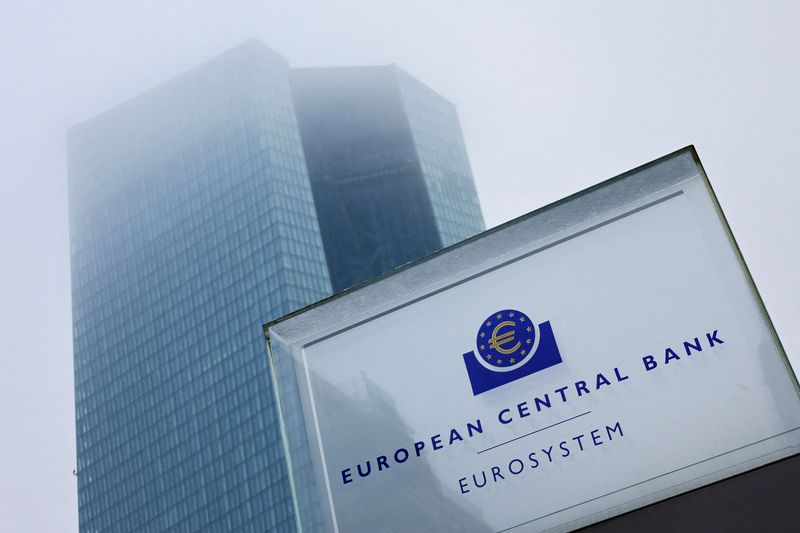(Reuters) - Euro zone negotiated wage growth slowed last quarter, bolstering the case for another interest rate cut in September and assuaging policymakers' fears that runaway labour costs would continue to put upward pressure on inflation.
Growth in negotiated wages slowed to 3.55% in the second quarter from 4.74% three months earlier, primarily because of a major slowdown in Germany, the bloc's biggest economy, data from the European Central Bank showed on Thursday.
The ECB has long pointed to this figure as a key input in policy deliberations and argued that a slowdown over the coming quarters could speed up policy easing.
The bank cut interest rates by 25 basis points in June in a move some considered somewhat premature but kept policy unchanged in July and gave almost no hint about its likely move on Sept. 12.
Still, markets see a more than 90% chance of another rate cut next month and expect at least one further move before the end of the year as price pressures appear to be easing and the economy continues to flirt with recession.
This economic weakness is why Finnish policymaker Olli Rehn has already made the case for a rate cut next month and why the German central bank said that a long expected recovery is likely to be delayed yet again.
While wage growth is likely to be choppy and could reaccelerate in Germany, some economists and policymakers argue that it has peaked and the trend is in line with the ECB's own projections.
"We think that the first quarter has likely been the peak for negotiated wages in the euro area," Morgan Stanley said in a note.
"In addition, the expected slowdown of momentum in compensations per employee sends an important signal that wage growth is on the way down. Overall, we think that this provides enough evidence for the ECB that wages are heading the right way," Morgan Stanley added.

While wage growth remains above levels consistent with a 2% inflation target, ECB chief economist Philip Lane has appeared relaxed about this.
He has argued that already-concluded wage deals lock in a further slowdown in the quarters ahead and, in any case, wages are still catching up after rapid inflation over the past four years eroded workers' purchasing power.